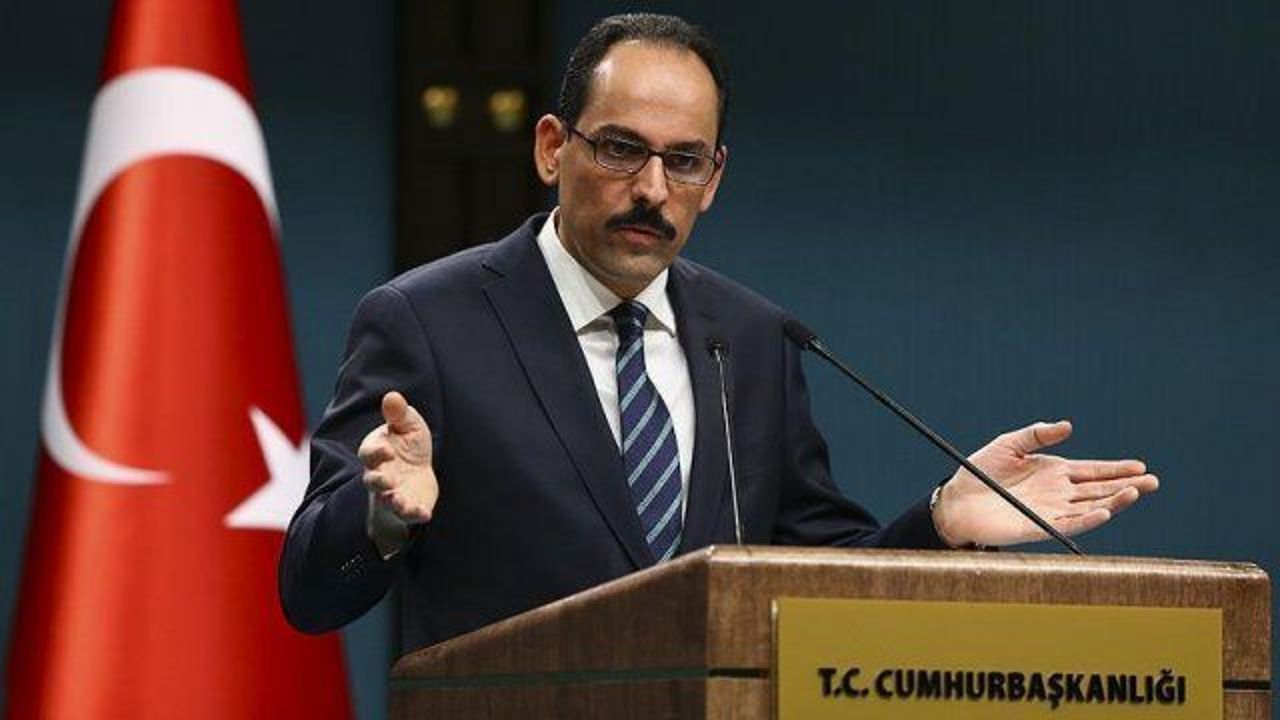Turkey wants calls for restraint to be addressed at PKK
President Erdogan's spokesman says calls for Ankara to stop anti-terror ops in southeast are misdirected, demands PKK lay down arms

Turkish Presidential spokesman Ibrahim Kalin said the calls for Turkey to stop its anti-terror operations in the country's southeast had to be directed at the terrorist organization PKK.
"The occasional calls made upon us like 'put an end to clashes and operations' should be addressed to the terrorist organization, to lay down their arms," he told a press briefing in Ankara on Wednesday.
Turkish security forces have been conducting counter-terrorism efforts against the PKK, mainly in the provinces of Diyarbakir and Sirnak amid ongoing curfews, with more than 700 terrorists killed since early Dec. 2015 according to the military.
Kalin was referring to international calls and a manifesto by a group of Turkish academics calling for the Turkish government to cease operations in the southeast.
"We also have a call for them: Call upon the terrorist organization and its affiliates to disarm rather than making calls to us regarding our efforts to maintain the public order," he said.
President Recep Tayyip Erdogan's spokesman also assured that the anti-terror fight was not waged against the country's Kurdish citizens, as he stressed that the terrorist PKK was not their "representative".
"Any counter claim is far from the truth as it obviously means equating the terrorist organization to the Kurdish people if you say it represents the Kurds," he said.
"It can be nothing but propaganda by the terrorist organization to showcase itself as the protector and representative of our Kurdish citizens," he added.
Kalin emphasized that Turkey will never give credit to "terror eulogies like 'Daesh terror is an atrocity but PKK terror is a resistance'".
"Terror is terror, it has no ethnic, religious or ideological basis. We must refuse all kinds of terror with the same perspective," he said. He further stated that the future of the solution process regarding the Kurdish issue, was bound to the PKK laying down arms "completely and unconditionally".
What is commonly known in Turkey as the solution process began in 2013 and aimed to end the 30-year conflict between Turkey and the PKK, listed as a terrorist organization by Turkey, the EU and U.S. It stalled after renewed violence broke out last year.
Kalin also touched upon Ankara's objection to the inclusion of PKK's Syrian extension, the Democratic Union Party (PYD) in the UN-sponsored Syria peace negotiations in Geneva scheduled for Friday.
"It is unacceptable for a group that has not sided with the Syrian opposition, but kept shady and dirty ties with the [Assad] regime and the PKK up to now, to be there to represent Syrian Kurds," he said.
Kalin highlighted that Ankara has no problem with the Syrian Kurds. He added that Turkey will be represented at the talks at the highest level.
He noted that the opposition groups to attend the Geneva negotiations were already determined during the Syrian opposition meeting in Riyadh in December, and that all related parties have been announced and invited.
"But it is against the essence of the negotiations and all the efforts until now to try to include the PYD in the Geneva talks with a last minute move," he added.
During an interview to CNN's Christiane Amanpour on Monday, Prime Minister Ahmet Davutoglu described Syrian Kurds’ attendance at the negotiation table as a "necessity,” but said those treating the PYD as a legitimate partner "do not live in the reality of the region".
Turkey has repeatedly accused the PYD of cooperating with the regime forces of Syrian President Bashar al-Assad.
The five-year civil war in Syria has seen more than 250,000 killed and led to more than 10.5 million fleeing their homes, according to the UN.
Anadolu Agency







